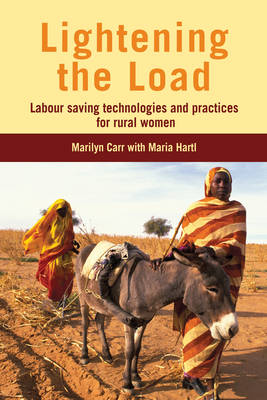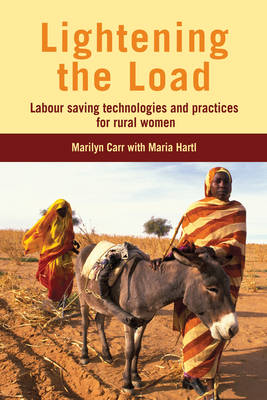
Door een staking bij bpost kan je online bestelling op dit moment iets langer onderweg zijn dan voorzien. Dringend iets nodig? Onze winkels ontvangen jou met open armen!
- Afhalen na 1 uur in een winkel met voorraad
- Gratis thuislevering in België vanaf € 30
- Ruim aanbod met 7 miljoen producten
Door een staking bij bpost kan je online bestelling op dit moment iets langer onderweg zijn dan voorzien. Dringend iets nodig? Onze winkels ontvangen jou met open armen!
- Afhalen na 1 uur in een winkel met voorraad
- Gratis thuislevering in België vanaf € 30
- Ruim aanbod met 7 miljoen producten
Zoeken
Lightening the Load
Labour-Saving Technologies and Practices for Rural Women
Marilyn Carr
Paperback | Engels
€ 16,95
+ 33 punten
Omschrijving
Women are central to overcoming rural poverty. They play a critical role in poverty reduction and food security because they are responsible for both production and reproduction. Rural women in developing countries have longer working days than men because of their triple roles as farmers, caretakers of their families and cash earners through income-generating activities and microfinance. In addition, increasing drought and deforestation in many parts of the world make women's workload even more burdensome as they have to walk ever-longer distances to find firewood and clean water. The multiple roles of women can act as an obstacle to development interventions, which often put additional pressure on women's time. Women's heavy workload reduces the time available for participation in project-related activities or affects their ability to care for their families. Ensuring women's access to labour-saving technologies for water, energy and farm-related activities is fundamental, and the need for such technologies is greater than it has ever been before. This timely publication looks back at three decades of experiences in introducing labour-saving technologies and practices to rural women and in combating persistent gender discrimination in access and control. It also takes into account major developments in science, technology and innovation over the last several years and shows they can benefit women.
Specificaties
Betrokkenen
- Auteur(s):
- Uitgeverij:
Inhoud
- Aantal bladzijden:
- 74
- Taal:
- Engels
Eigenschappen
- Productcode (EAN):
- 9781853396892
- Verschijningsdatum:
- 31/01/2010
- Uitvoering:
- Paperback
- Formaat:
- Trade paperback (VS)
- Afmetingen:
- 155 mm x 229 mm
- Gewicht:
- 136 g

Alleen bij Standaard Boekhandel
+ 33 punten op je klantenkaart van Standaard Boekhandel
Beoordelingen
We publiceren alleen reviews die voldoen aan de voorwaarden voor reviews. Bekijk onze voorwaarden voor reviews.











